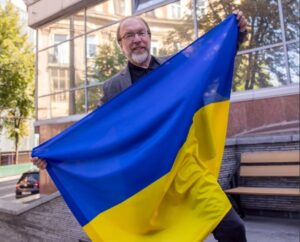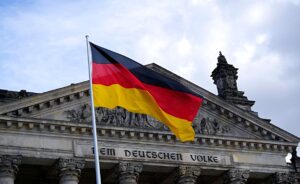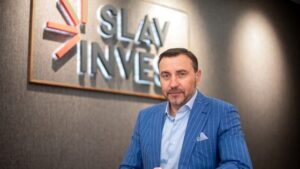
The share of investors who repeatedly buy S1 REIT fund certificates from the developer Standard One has grown to 43% in the five months since the funds began operating, according to the project’s press service.
“We have provided investors with the opportunity to increase their profits by increasing their own share. The minimum additional investment is equal to the cost of one certificate, which is just over UAH 1,000. But despite our expectations, the average amount of repeat sales is significantly higher, at almost UAH 90,000,” said Viktor Boichuk, commercial director of S1 REIT, in a press release.
He noted that currently, the vast majority of investors are people with investment experience who already have a certain portfolio of assets.
“For them, S1 REIT is an opportunity to diversify their asset portfolio with a relatively small check. In the first weeks of our work, investors went through a ”getting to know you” phase, studying us and our offer. Now we see their confidence growing,” Boichuk added.
He added that the project plans to scale up by reaching a new audience—Ukrainians who have not yet had experience in investment activities due to a lack of knowledge or significant start-up capital.
“The key advantage of S1 REIT is its accessibility. The entry threshold is the equivalent of $3,000, which is significantly less than the initial investment in the Kiev real estate market,” said the top manager.
As reported, in April this year, Kiev-based developer Standard One, which specializes in Build-to-Rent projects, announced the launch of a new product, S1 REIT. This is an investment tool that allows you to become a co-owner of square meters in profitable S1 buildings without having to personally manage the assets. Currently, S1 REIT has two open funds: S1 VDNH, with a planned yield of 8.2% per annum in US dollars, and S1 Obolon, with a yield of up to 10% per annum.

The Fixygen project presents an analysis of promising cryptocurrencies that may increase in value.
1. Ethereum (ETH) – the foundation of decentralized finance
Ethereum continues to show strong momentum. By September 2025, its price had reached a record high of $4,956, and experts predict further growth to $7,500–$12,000, fueled by institutional demand, ETF approval, and the expansion of DeFi and Web3 applications.
2. XRP, Cardano (ADA), and Remittix (RTX) — a balanced portfolio of opportunities
3. DeFi token market: Uniswap, Aave, and Layer Brett
Ethereum remains the foundation, but real income can be generated through DeFi tokens:
It is important to remember that investing in cryptocurrencies is a balance between risk and potential, and it is wiser to invest in projects with working solutions and transparent architecture.

The Italian government plans to restrict the presence of Chinese investors in key companies to avoid possible tensions in relations with the US, Bloomberg reports, citing informed sources.
The plans concern companies that the government considers strategic, both private and state-owned, the sources said. One of the most notable examples is Italian tire manufacturer Pirelli & C. SpA, 37% of which is owned by Chinese state-owned Sinochem International Corp.
Earlier this year, Pirelli stripped the Chinese investor of its management control after facing the threat of sales restrictions in the US, its main market. As reported, Washington has banned the import or sale in the country of connected cars that use Chinese equipment or software.
Sinochem insists that its investment in Pirelli is long-term, while Rome is considering options to pressure the Chinese investor to sell its stake, sources say.
The situation surrounding Pirelli shows the difficulties Europe faces in the new geopolitical reality. The region welcomed Chinese investors after the 2008 financial crisis, but now seeks to reduce its dependence on Beijing in order to protect strategic industries and maintain good relations with US President Donald Trump.
Among other companies from which Italy would like to oust Chinese investors is CDP Reti SpA, which controls the country’s power grids, sources say. A subsidiary of State Grid Corporation of China owns 35% of CDP Reti and has two seats on its board of directors.
Another example is power plant manufacturer Ansaldo Energia SpA. Although Shanghai Electric has already reduced its stake in the company from 0.5% to 40%, the very presence of a Chinese investor prevents the company from participating in a number of tenders and competitions in the US energy market, according to one of the sources.
In total, about 700 Italian companies have Chinese investors, but the government is mainly focused on large firms in strategic sectors, including energy, transport, technology, and finance.

Ukraine continues to attract foreign investors despite military risks. In an exclusive interview with Interfax-Ukraine, Gennady Chizhikov said that the Ukrainian Chamber of Commerce and Industry (UCCI) is actively working to build trust in the Ukrainian market.
“Investors are attracted not only by our export potential, but also by the availability of international arbitration, digital services, and the flexibility of Ukrainian business,” he said.
According to Chizhikov, the CCI participates in summits, forums, and business dialogues, including events in African and Persian Gulf countries, with the aim of attracting direct investment.
For more details, see the interview at https://interfax.com.ua/news/interview/1069297.html

The Index of Economic Expectations of Investors and Analysts in Germany for the next six months, calculated by the ZEW Research Institute, fell to the lowest since July 2023 of minus 14 points in April from the highest since February 2022 of 51.6 points a month earlier. This is the most significant drop since March 2022. Analysts on average expected it to decline to 9.5 points in April, according to Trading Economics.
“Global uncertainty has increased dramatically, not only because of the possible effects of the [US] mirror duties on world trade, but also because of the dynamic nature of their changes,” said ZEW President Achim Wambach. ”This is especially affecting export-intensive industries such as the automotive and chemical industries, as well as the production of metals, machinery and steel, which have recently seen significant improvements.
Meanwhile, the indicator of attitudes toward the current situation in Germany increased to minus 81.2 points this month from minus 87.6 points in March.
In the eurozone, the index of economic expectations in April fell to the lowest since December 2022, minus 18.5 points from 39.8 points a month earlier. The experts’ forecast for this indicator was 14.2 points.
The indicator for assessing the current economic situation in the currency bloc decreased by 5.7 percentage points to minus 50.9 points.
Source: http://relocation.com.ua/index-ekonomichnyh-ochikuvan-investoriv/

The postal and logistics group Meest is planning to attract a strategic investor to build a stable business in Europe, Meest China shareholder Vyacheslav Lysenko told Interfax-Ukraine in a blitz interview.
“We are preparing the company to go public, and we have attracted powerful investments for its development – a powerful foreign investor who appreciates our achievements and experience, is interested in the stable business that our company will build in Europe,” Lysenko said.
It is a strategic investor, the company’s shareholder clarified.
He refused to name the size of the stake the group is ready to offer to the “strategist.”
At the same time, a Meest China shareholder confirmed that the potential investor is a logistics company.
The deal could be closed in 2025, Lysenko said.
Meest Group delivers to 90 countries and has been operating in the c2c and b2c postal services market for over 30 years. The company was founded by entrepreneur Rostyslav Kysel, who remains its beneficiary and is responsible for the strategic direction of the company. The Group of companies includes Meest China, Meest USA, Meest Europe and Meest Ukraine.
Meest China has been a leader in the delivery of postal parcels from China for over 15 years. It also delivers large cargoes from China with customs clearance. It has its own warehouse of 5 thousand square meters in Guangzhou.
In May 2024, Meest International launched a new logistics center near the city of Dębica in Poland, 170 km from the border. The company plans to expand its network of hubs in Eastern and Central Europe.